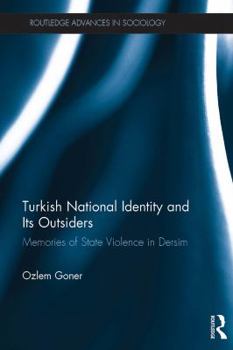Turkish National Identity and Its Outsiders: Memories of State Violence in Dersim
This book examines the ways in which states and nations are constructed and legitimated through defining and managing outsiders. Focusing on Turkey and the municipality of Dersim - a region that has historically combined different outsider identities, including Armenian, Kurdish, and Alevi identities - the author explores the remembering, transformation and mobilisation of everyday relations of power and how relationships with the state shape both outsider identities and the conception of the nation itself. Drawing on archival methods, field research, and interviews groups, this book offers a historical understanding of relationships of power and struggle as they are actualised and challenged.
Format:Hardcover
Language:English
ISBN:1138207152
ISBN13:9781138207158
Release Date:May 2017
Publisher:Routledge
Length:232 Pages
Weight:1.11 lbs.
Dimensions:0.6" x 6.1" x 9.2"













